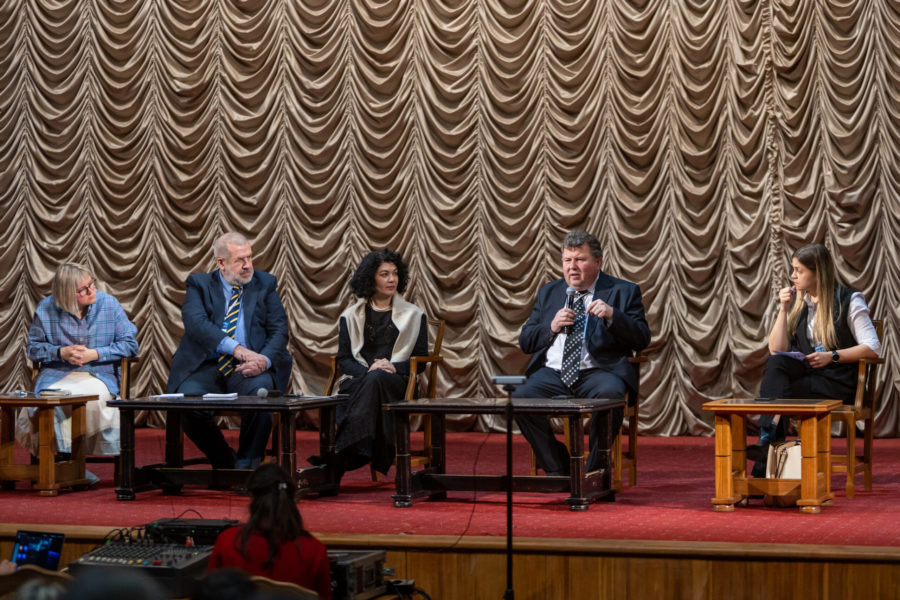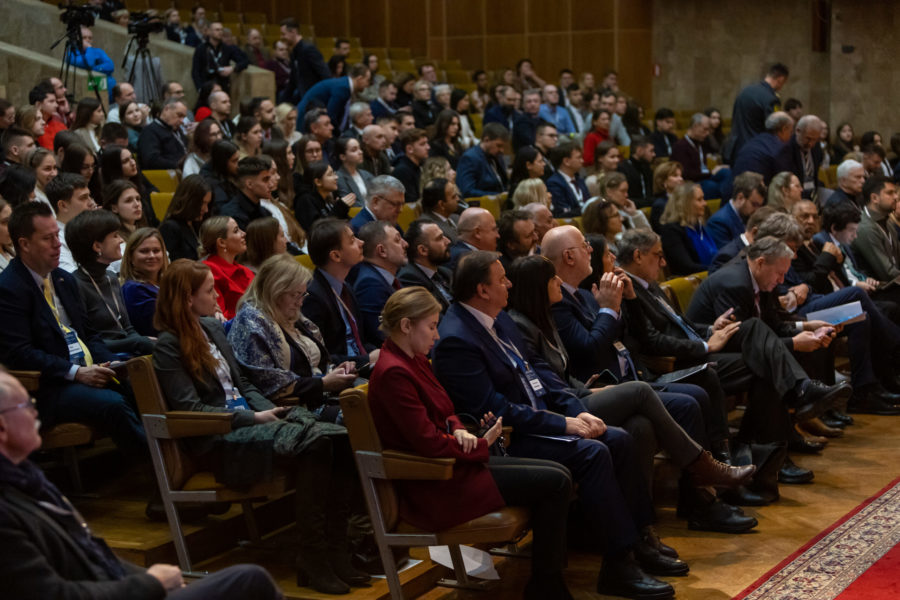It’s impossible to restore the state in Crimea without local residents, but legislation on collaborationism will hinder this — Lunova
Alena Lunova, advocacy director of Human Rights Center ZMINA, joined the Scientific and Practical International Conference “Special Tribunal. Reintegration of Crimea and All Occupied Territories. War Crimes. Compensation Mechanism” held on December 15.

The conference was organized with the support of the Office of the President of Ukraine. The event had four panel discussions dedicated to the creation of a special tribunal to investigate the crime of aggression of the Russian Federation against Ukraine and war crimes in general, the reintegration of Crimea and all temporarily occupied territories, and the creation of a compensation mechanism.
Representatives of the government authorities, judges, human rights defenders, Ukrainian and foreign professors all participated in the conference. The ambassadors of Estonia, Cyprus, Latvia, Moldova, Pakistan, South Africa, Slovakia, Hungary, France, Croatia and Switzerland joined as special guests.
During the panel on the reintegration of the occupied territories, ZMINA advocacy director Lunova noted that before the start of the full-scale war, the state’s strategic documents on reintegration and de-occupation had been aimed at maintaining ties with Ukrainians under occupation: programs were created to teach children to encourage them to leave, or services for those under occupation; Ukrainian documents were also issued.
” The full-scale war forced us to think about how we will restore these territories. And in this context, the cooperation between the civic sector and the authorities is crucial ,” the expert believes.
Lunova noted that all the occupied territories would have common problems, therefore integral strategies for the de-occupation and restoration of the territories after the occupation, which the government is trying to develop now, are extremely important.
In the context of the de-occupation of Crimea, the human rights activist noted, it is impossible to restore power there without involving local residents in working for government agencies as it is impractical to Ukraine transfer such a large number of government workers from the mainland.
” It is also important that the locals do not perceive the restoration of administrations as something hostile. But how to do this with the effective legislation on punishment for collaborationism? After all, it is poorly written and many people may fall under it. And this is used by Russian propaganda ,” Lunova said.
Another issue that needs prompt resolution is the documents issued by the occupying regime and Ukraine’s strategy for recognizing or ignoring these documents.

” Not to recognize such documents means to bring the territory, people and legal system to collapse. To recognize means to say politically that we trust the aggressor state in this. We should already have relevant discussions in professional circles ,” the expert believes.
Watch the video of the international conference at the link .
If you have found a spelling error, please, notify us by selecting that text and pressing Ctrl+Enter.















